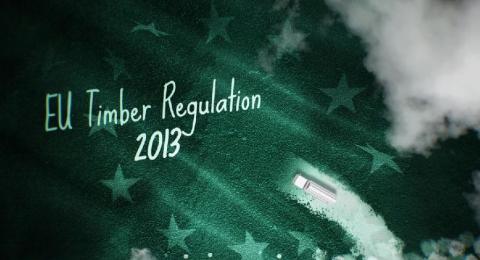The EU Timber Regulation: check your suppliers now
Many enterprises trading in wood or paper products are about to enter purchase agreements with suppliers located outside of the EU.
Such deals may imply delivery to European destinations during the first months of 2013, which may have some unforeseen consequences for the importing companies, according to Christian Sloth, expert on timber legality in the non-profit organisation NEPCon.
”I strongly recommend that the companies start asking some critical questions about these supplies. The EU Timber Regulation covers nearly all products made from wood or paper. If contracts are entered now for the purchase of products that imply delivery of the goods to European destinations after 3 March next year, the buyer needs to make sure that the risk of illegal wood contained in the products is negligible”, he explains.
According to the official text, products that are made available for the European market after 3 March 2013 will be covered by the regulation. This applies regardless of the date of the order, purchase agreement or financial transaction.
In most cases, a product will be considered to have been made available for the European market once it has been custom cleared for entrance into an EU country.
The EU Timber Regulation bans trade in illegal wood and lays down special obligations for organisations that place timber or timber products on the EU market for the first time. These operators need to have a Due Diligence System in place for ensuring access to required information a well evaluating and mitigating risk of illegal timber in their supply chain.
Tips for buyers
”My advice for companies buying wood-based products from non-EU countries is to evaluate their supply chain and the documentation accompanying their supplies. The origin of the wood should be documented; and the buyers should assess the risk that illegally harvested wood has been used in the products”, says Mr Sloth. “In case of such risk, the buyer should consider the options for getting the necessary documentation or finding another supplier”.
”I also recommend including legality as an explicit precondition in purchase contracts. This cannot replace risk assessment but does send a strong signal to the suppliers. Aside from these short-term measures, of course the companies need to ensure full compliance with the regulation by 3 March 2013”.
Growing awareness
”There are many signs that the enforcement of the EU Timber Regulation is just around the corner”, says Mr Sloth. ”Details about the requirements are starting to come forth, and NEPCon is receiving an increasing number of queries from our clients and other organisations who want to know more about the Timber Regulation”.
In collaboration with several companies, NEPCon is currently testing a new service concept that encompasses a ready-made Due Diligence System (DDS), capacity building and certification of the company’s implementation of the DDS.



